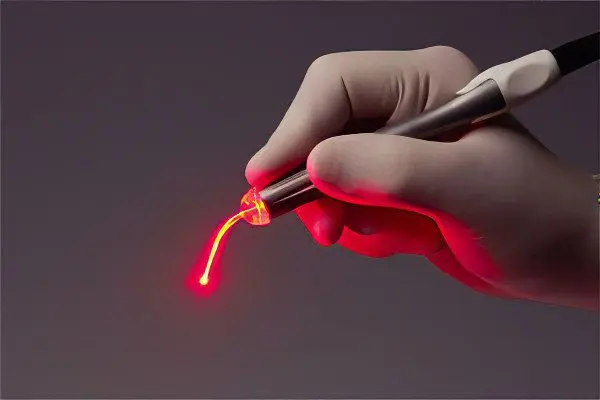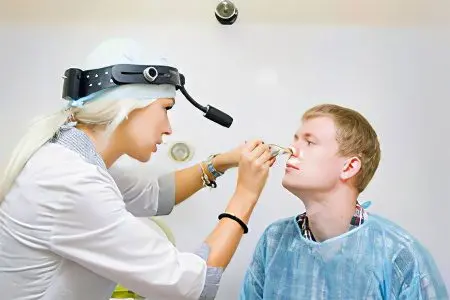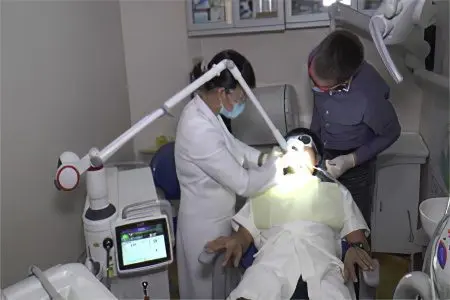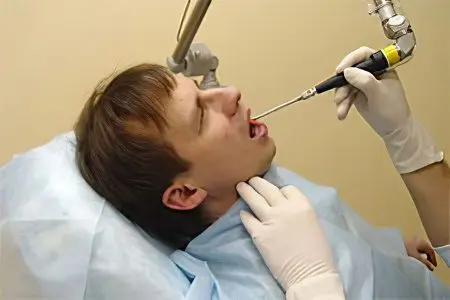Contents

Snoring is not just an unpleasant companion of a night’s rest, but a serious disease that worsens the quality of life of not only the patient himself, but also his loved ones. If you ignore snoring, it can have a negative impact on the functioning of most body systems.
During snoring, a person’s breathing is interrupted, but he does not feel it. This leads to oxygen starvation, the appearance of daytime sleepiness and increased fatigue. In addition, snoring is associated with risks such as: arrhythmia, tachycardia, high blood pressure, heart attack and stroke. Sleep apnea is especially dangerous, which is fraught with a complete cessation of breathing and death of a person.
Snoring diagnosis. A person may not even be aware that he is snoring. This is most often reported to him by close people living with him in the same apartment. After establishing this fact, you need to go to an appointment with an ENT doctor. The doctor will examine the patient’s nasopharynx, determine the structure of his respiratory tract, and also how the vibration appears, leading to snoring. After determining the cause of snoring, the doctor will recommend the most appropriate treatment. It is also possible to refer the patient to a consultation with a general practitioner and an endocrinologist.
A modern technique that helps doctors diagnose snoring is called polysomnography. It allows you to find out whether snoring is accompanied by respiratory arrest. The study is absolutely safe and painless for the patient. Special sensors are attached to his skin, which record breathing parameters and brain activity. Naturally, at this time a person should sleep.
Indications for laser snoring treatment

Laser snoring treatment is a surgical technique that is not indicated for all people. To begin with, the doctor will try to solve the problem with the help of conservative therapy. Patients may be advised to change their lifestyle, treat diseases of the nasopharynx, try using orthopedic mattresses and pillows for sleep, stop smoking and drinking alcohol, control body weight, etc. If this does not help, then an operation is prescribed.
It may be recommended for patients with the following problems:
Anatomically incorrect form of the organs that are responsible for human breathing. Frequent colds, ENT infections can help soften the upper palate. They make this part of the oral cavity loose, and the palatine uvula becomes longer. As a result, it will not be possible to get rid of snoring by conservative methods of influence, an operation will be required. Sometimes the uvula is elongated in a person from birth, which also requires laser uvulopalatoplasty.
The presence of a large amount of lymphoid tissue that accumulates near the nasopharynx. This is due to chronic diseases of the oral cavity. In this case, the patient undergoes laser pharyngouvulopalatoplasty.
Deviated nasal septum is also an indication for laser treatment.
With the help of a laser beam, benign tumors in the nasal cavity or fibrous growths, which often cause snoring, can be removed.
With the help of a laser, the lumen of the pharynx can be expanded.
Preparing for an operation
X-ray the nose.
Getting advice from a surgeon.
Blood donation for clinical and biochemical analysis, urine for general analysis, fluorography.
Before the operation, it is necessary to treat all infectious, colds and other bacterial or viral diseases.
Contraindications for laser snoring treatment

Contraindications to the treatment of snoring with a laser can be identified as follows:
Uncontrolled gag reflex.
Thickened tongue.
Professions related to creative activity, such as: singers, musicians, actors, etc. The fact is that the operation can provoke a temporary change in voice, which can be critical for a certain category of people.
Childhood.
Diseases of the cardiovascular system.
The presence of a malignant tumor in the body.
Any disease in the acute stage.
Pregnancy and lactation.
Laser palatoplasty in the treatment of snoring

Laser treatment for snoring is carried out in a hospital. The patient is given local anesthesia, after which the tissues of the soft palate are cut from 2 sides with a narrowly focused laser beam. As a result of the operation, the patient has two small wounds, which, when tightened, raise the soft palate.
With the help of a laser, it is possible not only to tighten sagging tissue, but also to instantly coagulate the vessels. Therefore, the risk of bleeding during the procedure will be minimal.
The operation is short in time, but you have to go through it several times. This improves the efficiency of the procedure. Most often, five are required.
As a result, the tissues of the soft palate and uvula harden. Therefore, the vibration created during the passage of air through the nasopharynx does not provoke the appearance of a characteristic sound.
Rehabilitation after the operation is short, it does not take more than 2-3 weeks. At this time, the patient will experience pain in the throat and pain in the ear. To reduce pain, you can take painkillers, do rinses with anesthetic solutions.
During the rehabilitation period, you will need to stop eating foods containing acid.
The wound will heal completely after 21-30 days. Palatoplasty or, as it is also called, uvulopalatoplasty, is the most common technique for treating snoring using a laser beam. However, depending on the problem that provoked its appearance, other procedures can be carried out.
Types of surgeries for the treatment of snoring with a laser:
Pharyngouvulopalatoplastya – in addition to the laser, the doctor uses special forceps during the procedure. With their help, he either completely removes the tonsils, or reduces them in size. The operation is performed under local anesthesia.
Correction of the nasal septum. The doctor uses a laser beam to make incisions in the lining of the nasal cavity. After gaining access to the nasal cartilage, the doctor heats and corrects them, giving the nose the correct shape. As a result, the patient gets rid of snoring. The operation is most often performed under general anesthesia.
Removal of fibroids and small formations in the nose. Depending on the complexity of the operation, the patient may be shown both local and general anesthesia.
Narrowing of the pharyngeal passage. With the help of a laser, soft tissues are removed, which are later replaced by a denser tissue.
Pros and cons of laser treatment for snoring

Advantages of the technique:
Minimal blood loss.
The speed of the operation. In general, the procedure takes no more than half an hour.
No need to go to hospital. After the operation, the patient should be under the supervision of doctors for no longer than 2 hours.
Short rehabilitation period. Doctors indicate that it can be 20-30 days. Although in most patients, all residual effects disappear after 10 days.
No need for general anesthesia.
Complete elimination of snoring, which significantly improves the quality of life in general and night rest in particular. And this is true not only for the patient himself, but also for his immediate environment.
It should be understood that laser snoring treatment has a number of disadvantages, including:
The operation is not completely painless, therefore it requires the introduction of local anesthesia.
During the rehabilitation period, you will need to take painkillers to reduce pain. This is especially true for the first two days after the procedure.
Perhaps inflammation of the lymphoid tissue and the mucous membrane of the throat. This happens especially often when the laser beam hits nearby tissues. Such unprofessional actions of the surgeon lead to the formation of a severe burn.
There remains a risk that the operation will be ineffective, although it does not exceed 20%.
To completely get rid of snoring, several operations may be required.
The procedure is associated with the risk of side effects.
The operation has a number of contraindications, so not all patients can undergo it.
The high cost of the procedure. In some clinics, it can reach 60 thousand rubles.
Side effects

Laser treatment for snoring is associated with a number of side effects, including:
Dryness in the throat.
The occurrence of pain in the ears.
Voice change (this side effect is reversible).
risk of bleeding.
risk of infection.
Increased salivation.
There may be problems with eating.
The appearance of bad breath.
Result
According to statistics, about 80% of all patients who have undergone laser snoring treatment completely get rid of their problem.
The effectiveness of the treatment depends on a number of factors, namely: the severity of the disease, how correctly the diagnosis is made, and how correctly the treatment tactics are chosen. Equally important is the qualification and experience of the surgeon, as well as the manufacturability of the equipment with which the treatment is performed.
Snoring is a problem that needs to be addressed. To get rid of snoring, you need to consult a doctor and follow his recommendations.









